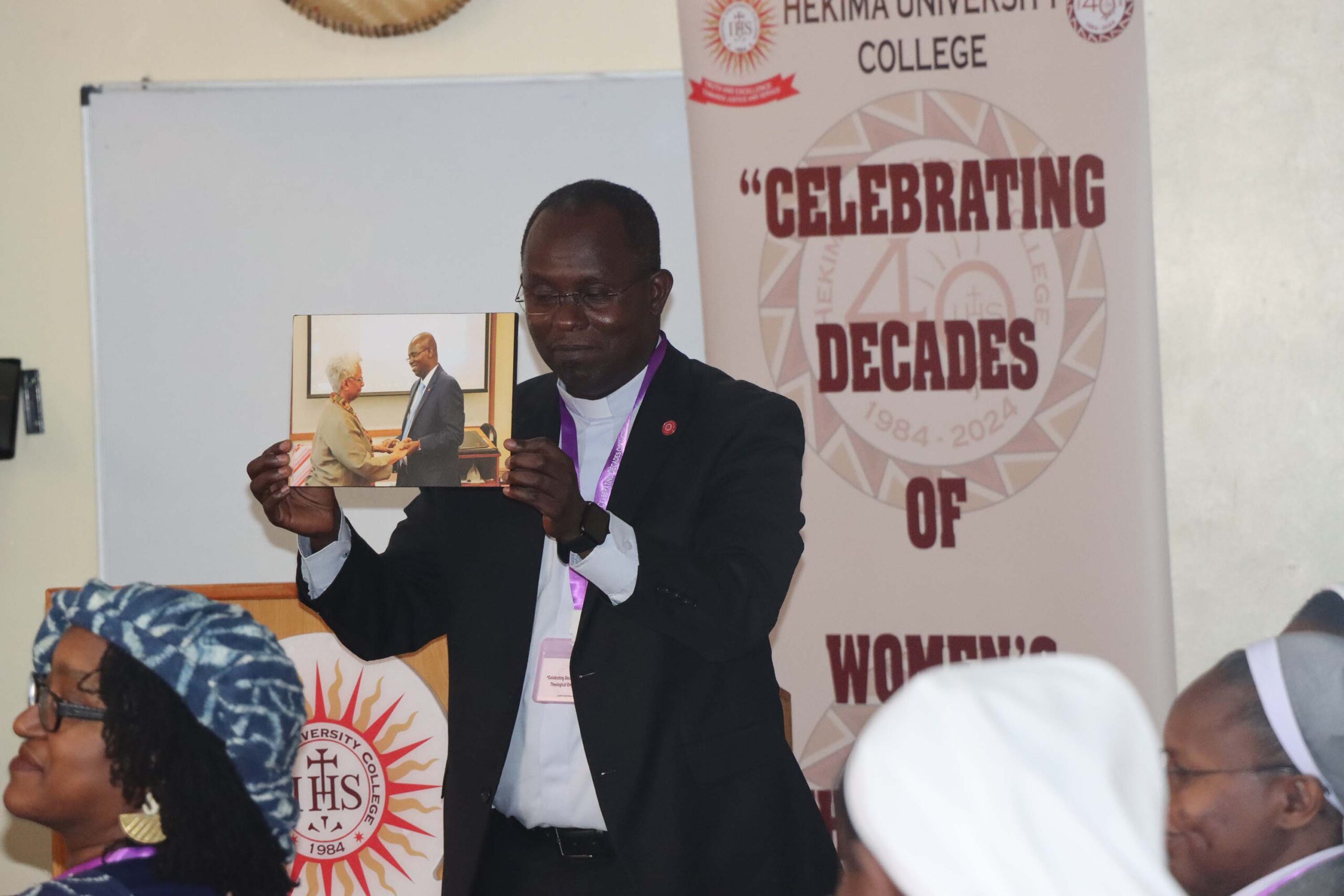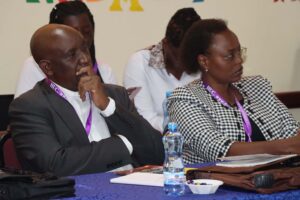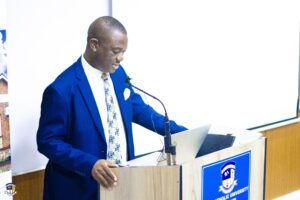KENYA: “Women’s Voices are Seldom Heard,” Hekima Principal Calls for Increased Formation of Women Theologians

Fr. Marcel Uwineza
Sr. Jecinter Antoinette Okoth, FSSA
At the opening of the International Conference on African Women Theologians at Hekima University College (HUC) in Kenya’s capital Nairobi Thursday, March 7, the principal of the Jesuits college in his welcoming remarks pointed out that women’s voices are rarely heard in decision-making tables and advocates for increased formation of women theologians.
“We regret that the women theologian voices often go unheard,” Fr. Marcel Uwineza SJ expressed to over 50 participants who were following the session both physically and virtually expounding that the goal of the conference is to “amplify the voices of African women in theological discourses and to prompt the well-deserved respectful listening of African women theologians by the Church and society.”
Fr. Uwineza, a native of Rwanda, acknowledged that women can deliver, and if given the opportunity, their work challenges long-held gender stereotypes of sexism, discrimination, and favoritism, which often play roles in appointment decisions.
Addressing the participants gathered for a four-day conference to present papers on various thematic areas including systematic theology and synodality, Canon Law and Synodality, Church and Synodality, Bible and Synodality, Peacebuilding and Synodality, Pastoral Theology, and Synodality, the Principle of the Jesuit College highlighted the formation of women in theology is quite low.
“Let me urge superiors among you to send Sisters for further studies and to keep taking synodality as a way of doing theology,” Fr. Uwineza said and opened doors for theology studies at HUC saying, “At Hekima University College, we have an online program in theology for sisters, let the sisters enroll for it.”
He noted further that when Pope Francis realized the existing gap of women in leadership roles, he assigned women to handle key responsibilities in the Synod on Synodality a move that provided an opportunity to appreciate the role of women in the Church.
Referring to the role women in Rwanda have played after the 1994 genocide, Fr. Uwineza said, “In Rwanda, women held positions in key institutions established to deal with the challenges of reconciliation in the aftermath of the genocide against the Tutsi. They worked in ‘The Unity and Reconciliation Commission and Gacaca transitional jurisdictions.”

The Gacaca courts were communities at the local elected judges to hear the trials of genocide suspects accused of all crimes except planning of genocide.
According to the Principal, the women were “considered good and honest witnesses and they played a major role as community mediators and contributed to resolving conflicts using traditional Rwandan practices of conflict resolution.”
The conference which will run from 7-10, March, and convened by the college as they mark 40 years of existence is themed ‘Celebrating decades of women’s theological empowerment.’
Assuring support of women as a university the principal said, “Celebrating its fortieth anniversary, HUC re-affirms its commitment to educating women theologians and wishes to contribute to the empowerment of women and making their voices louder in theological discourses.”
Additionally, he concluded referring to an African proverb that says ‘If the roots are deep, we have no reason to fear the winds,’ HUC desires to deepen the Church’s intellectual roots and to prevent challenging winds ahead.”


